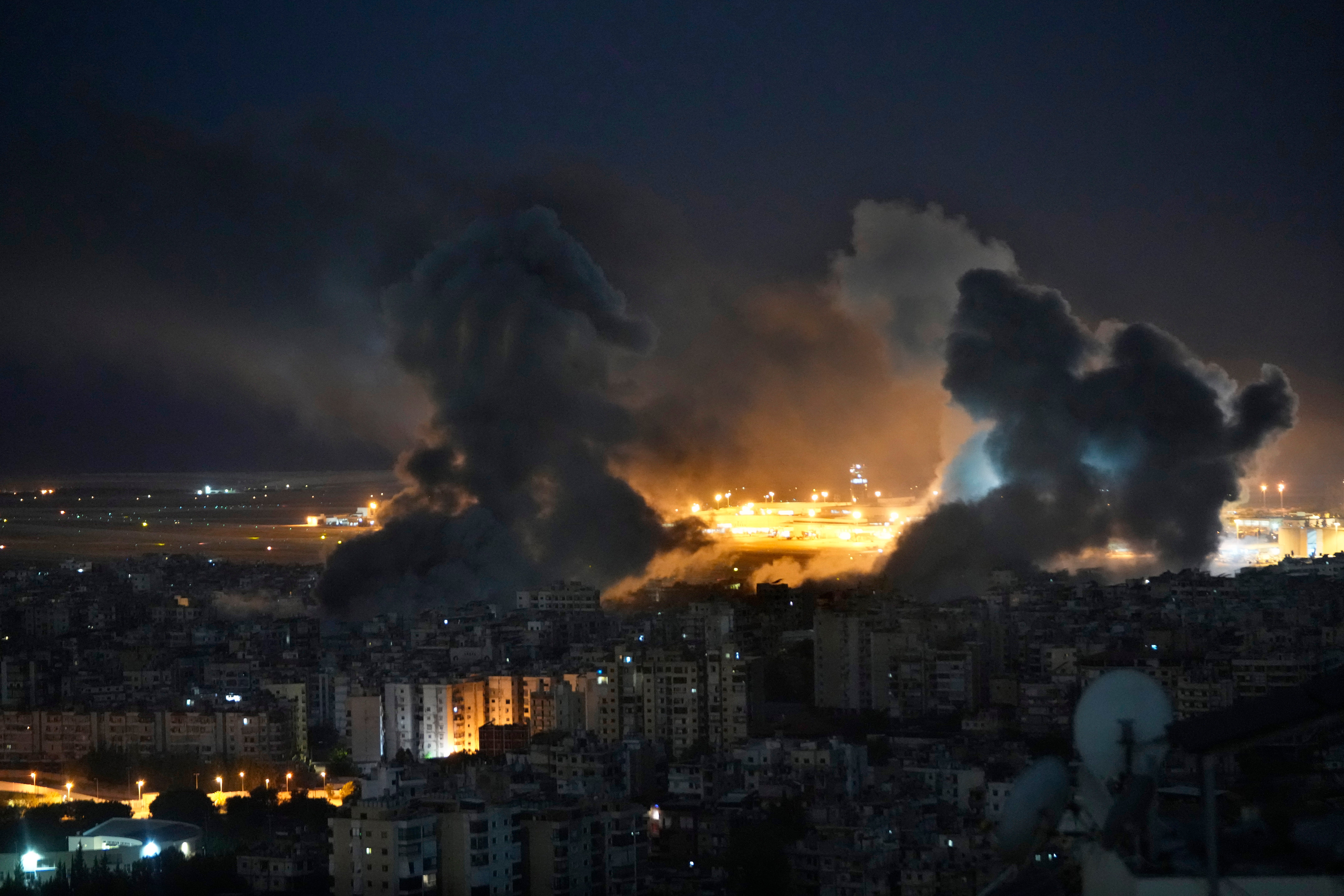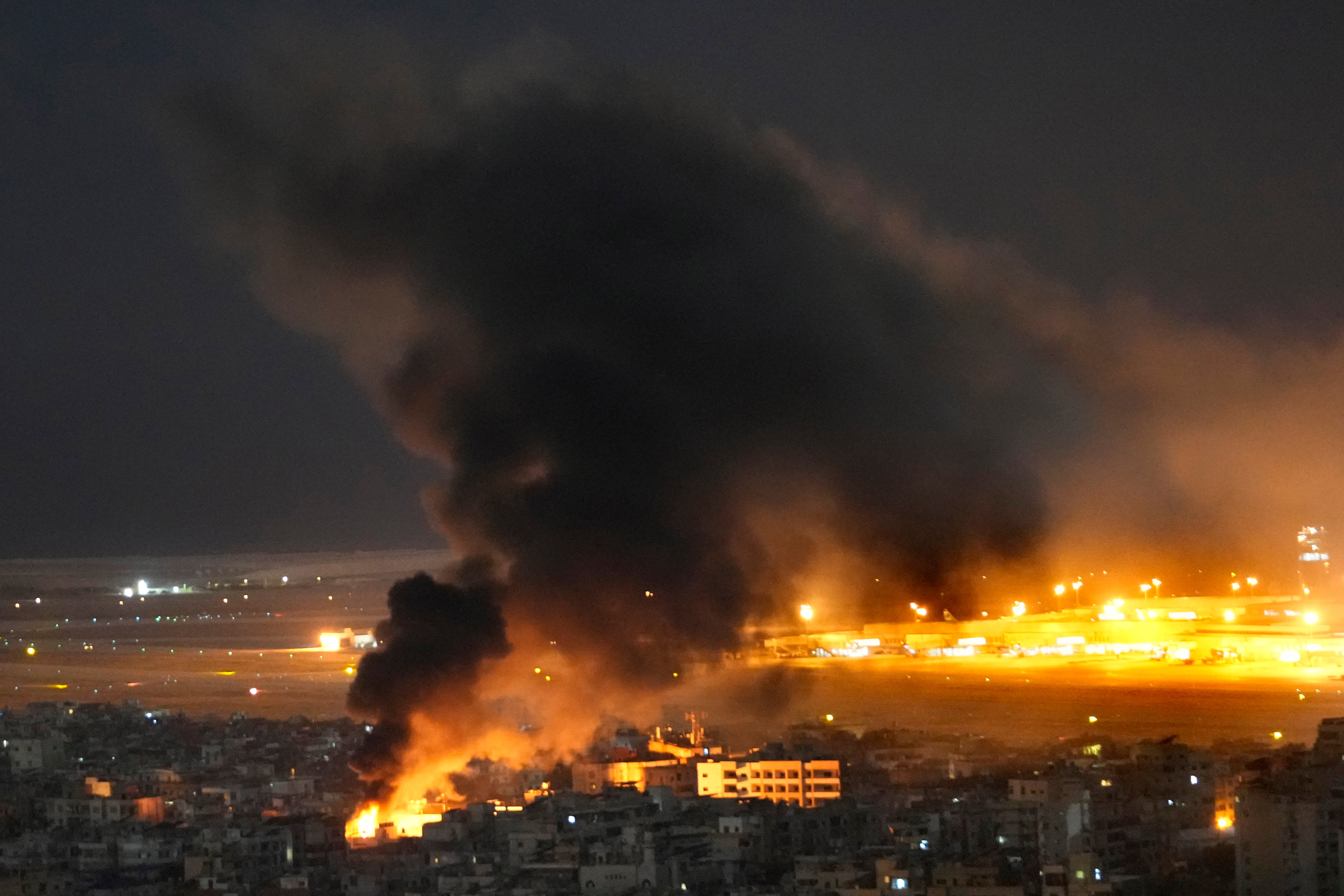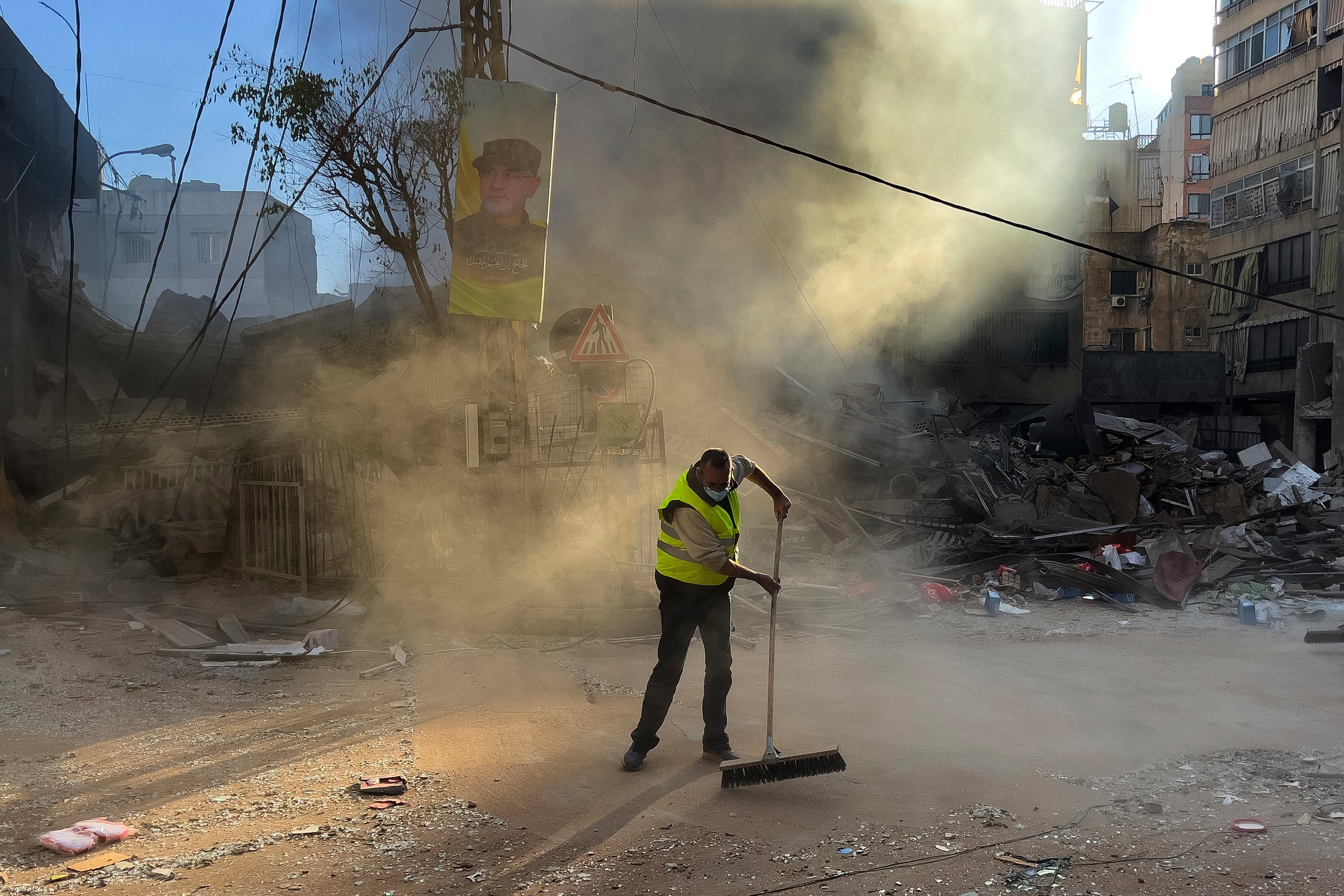Hundreds flee as explosions heard in Beirut after Israel warns of overnight strikes
Blasts began in the southern suburbs of Lebanon’s capital on Sunday evening

Your support helps us to tell the story
From reproductive rights to climate change to Big Tech, The Independent is on the ground when the story is developing. Whether it's investigating the financials of Elon Musk's pro-Trump PAC or producing our latest documentary, 'The A Word', which shines a light on the American women fighting for reproductive rights, we know how important it is to parse out the facts from the messaging.
At such a critical moment in US history, we need reporters on the ground. Your donation allows us to keep sending journalists to speak to both sides of the story.
The Independent is trusted by Americans across the entire political spectrum. And unlike many other quality news outlets, we choose not to lock Americans out of our reporting and analysis with paywalls. We believe quality journalism should be available to everyone, paid for by those who can afford it.
Your support makes all the difference.Hundreds of people in Beirut fled their homes as about a dozen explosions were heard across the Lebanese capital on Sunday evening, shortly after Israel announced it would aim at sites linked to the financial operations of Lebanon’s Hezbollah group.
Explosions began in Beirut’s southern suburbs about an hour later on Sunday.
Israeli military spokesman Daniel Hagari said they will issue evacuation warnings for people in parts of Beirut, and “anyone who will be near the sites used to finance Hezbollah’s terrorist activity is required to stay away from them immediately”. The first warnings affected southern Beirut and the eastern Bekaa valley.
Eyewitnesses said a building located in the Chiyah neighbourhood in the southern suburbs of Beirut was reduced to rubble and the few people in the area had fled ahead of the explosion, meaning there were no casualties.

Panicked crowds clogged the streets and caused traffic jams in some parts of Beirut as they tried to get to neighbourhoods thought to be safer, a witness told Reuters.
Israel said the strikes would target branches of the Al-Qard al-Hassan interest-free lending association, which the US says Hezbollah used to pay operatives and help buy arms, “all over Lebanon”.
Its name in Arabic means “the benevolent loan” and Hezbollah has used it to entrench its support among the Shia population in a country where state and financial institutions have failed in recent years.
The institution has more than 30 branches across Lebanon including 15 in densely populated parts of central Beirut and its suburbs.
Al-Qard al-Hassan in a statement called the decision to target it a sign of Israel’s “bankruptcy” and assured customers it had taken “measures” to ensure their funds were safe.
The registered non-profit organisation, sanctioned by both the US and Saudi Arabia, is also used by ordinary Lebanese.

A senior Israeli intelligence official said the purpose of this strike was to “target the ability of Hezbollah [to function economically] both during the war but also afterwards to rebuild and to rearm ...on the day after.”
An Israeli strike brought down a building housing one of the institution’s branches in Baalbek, deep into Lebanon, Lebanese channel Al Mayadeen reported.
The scope of the new Israeli evacuation warnings was not immediately clear.
Earlier on Sunday Israel said it hit Hezbollah’s intelligence headquarters and an underground weapons workshop in Beirut.
A year of escalating tensions between Israel and Hezbollah over the war in Gaza turned into all-out war last month, and Israel sent ground troops into Lebanon early this month.
At least 2,464 people have been killed in Israeli airstrikes and 11,530 suffered injures, according to the Lebanese health ministry.
Israel’s announcement came a day after US defence secretary Lloyd Austin called civilian casualties in Lebanon “far too high” in the Israel-Hezbollah war, and urged Israel to scale back some strikes, especially in and around Beirut.
Iran supports Lebanon-based Hezbollah, and the United States is investigating an unauthorised release of classified documents indicating that Israel was moving military assets into place for a military strike in response to Iran’s ballistic missile attack on 1 October, according to three US officials.
The announcement came as the Lebanese army said three soldiers were killed in an Israeli strike on Sunday on their vehicle in southern Lebanon.
There was no comment on that from the Israeli military, which said it struck more than 100 Hezbollah targets in southern Lebanon in the past day and continued ground operations there.
Lebanon’s army has largely kept to the sidelines in the war. The military is a respected institution in Lebanon, but is not powerful enough to impose its will on Hezbollah or defend the country from an Israeli invasion.
Israel’s military said Hezbollah fired more than 170 rockets into the country on Sunday. Israel’s Magen David Adom rescue service said three people were slightly injured by a fire sparked by a rocket attack on the northern city of Safed.
Israel has increased strikes on southern neighbourhoods of Beirut known as the Dahiyeh, a crowded residential area where Hezbollah has a strong presence.
It is also home to many civilians unaffiliated with the militant group.
Additional reporting by agencies
Join our commenting forum
Join thought-provoking conversations, follow other Independent readers and see their replies
Comments